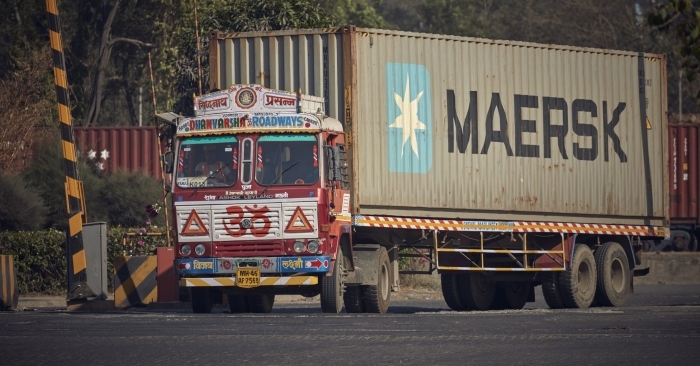Maersk celebrates 30 years of operations in India
September 8, 2020: In August 2020, A.P. Moller – Maersk has marked 30 years of operations in India which started with feeder operations and grown to one of the biggest logistics partners while investing into port terminals and Indian talent.

September 8, 2020: In August 2020, A.P. Moller – Maersk has marked 30 years of operations in India which started with feeder operations and grown to one of the biggest logistics partners while investing into port terminals and Indian talent.
Maersk’s growth in India
In August 1990, Maersk made its beginnings in India with a single feeder service between Mumbai Port and Dubai Port. Being served by Maersk Clementine with a capacity of 436 twenty-feet equivalent units of containers (TEU), this was the first step into the Indian market by Maersk.
Fully aware of the country’s trade potential, Maersk kept building its network over the last 30 years in India to grow into a logistics partner for almost a fifth of the country’s trade today and moves over 2.6 million TEUs in a year. This scale of operations is possible through a network that spreads across 15 ports in India, serving customers through 25 sales offices and moving cargo through more than 70 inland acceptance points.
Investments into port terminals
A. P. Moller – Maersk recognised India as a land of opportunities and started investing in port terminals too. In 2004, APM Terminals Mumbai, also known as Gateway Terminals India, was established at the Nhava-Sheva Port in Navi Mumbai and controlling stake in Gujarat Pipavav Port was acquired in 2005. Since then, these two terminals have fuelled the trade possibilities in and out of India for A.P. Moller – Maersk. APM Terminals Mumbai has been the busiest container terminals in the country over the last few years and has moved more than 2 million TEUs annually in 2018 and 2019. The continuous investments in developing infrastructure are a testimony of the company’s long-term commitment to the Indian market.
Tapping local talent
Maersk has also recognised the potential of Indian talent. To capitalise on this, Maersk set up the Global Service Centre (GSC) in India. Maersk GSC partners with the company’s various business units to identify offshoring opportunities and provides business solutions. With several offices in India across Chennai, Pune, Mumbai and Bangalore, the GSC supports Maersk’s global digital transformation by tapping local talent and partnering with the industry ecosystem. Strategically located in India’s Silicon Valley Bangalore is also the GSC’s Tech Centre which plays the role of a key enabler in Maersk’s digitalisation roadmap by tapping into new technologies and solutions to significantly improve the customer experience opportunities and provide business solutions.
“With approximately 17,000 Indian nationals employed in its operations in India and globally and with a majority of its manning or crew appointments for vessels being done from India, Maersk has not only believed in the potential of the country but also acted upon it with a commitment of this magnitude,” said the release.
Digitisation efforts
Maersk has been the pioneer of digitalisation in logistics in India. Especially in the Covid-19 pandemic, the company’s continuous efforts of investing in transformation and digitalisation paid off when Maersk was able to offer digital solutions to its customers enabling trade to continue with almost no disruptions despite country-wide lockdowns. Furthermore, being an integrated container logistics provider, Maersk has been playing the role of a one-stop-shop to its customers and offering end-to-end logistics solutions from inland transportation by road or rail, terminal offerings, warehousing, yards, customs clearances and documentation and shipping on ocean, thus taking complexity out of supply chains for them.



